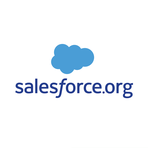Salesforce CEO's Troop Suggestion Rocks San Francisco Tech Landscape
October 19, 2025, 10:04 pm

Location: United States, California, San Francisco
Employees: 10001+
Founded date: 2000
Google
Location: United States, New York

Location: United States, New Jersey, Millburn
Employees: 201-500
Founded date: 1996
Salesforce CEO Marc Benioff faced intense scrutiny for suggesting federal troops could aid San Francisco safety. This ignited a political firestorm and prompted the resignation of prominent Democratic donor Ron Conway from the Salesforce Foundation board, citing misaligned values. Local officials, including Governor Newsom, swiftly rejected the intervention idea, emphasizing local control and decreasing crime. Benioff, amidst mounting pressure and following the Dreamforce conference, issued a public apology. He retracted his previous stance, stating the National Guard was unnecessary. The incident underscores deep political divides within the tech industry and city leadership debates over public safety and federal oversight. It also highlighted the complexities of corporate responsibility and political commentary. Benioff now stresses local solutions. The controversy reverberates across Silicon Valley.
Marc Benioff sparked a major controversy. The Salesforce CEO suggested federal troops could bolster San Francisco safety. His comments appeared in a prominent national newspaper. He believed more "cops" were desperately needed. Federal intervention became a sudden debate point.
This idea landed during a sensitive period. President Trump's administration previously deployed the National Guard. Portland, Oregon and Chicago saw these deployments. They caused widespread protest and legal challenges. Citizens faced detention without legal representation. San Francisco leaders watched these events unfold with concern.
Benioff's suggestion quickly drew sharp criticism. Local politicians voiced strong opposition. California Governor Gavin Newsom weighed in forcefully. He made it clear: federal troops were not welcome. San Francisco officials asserted strong local control. They stated crime rates were actively declining. The city could handle its own public safety effectively.
A significant consequence followed swiftly. Ron Conway resigned from the Salesforce Foundation board. Conway is a powerful figure in venture capital. He funded early tech giants like Google and Airbnb. His political affiliations leaned strongly Democratic. He supported prominent figures like Kamala Harris and Gavin Newsom. Conway's email to Benioff cited "values no longer aligned." This marked a clear, public break.
The Salesforce Foundation serves an important philanthropic role. It channels corporate donations. It donates millions to public education. Conway had served on its board for over a decade. His departure signaled a profound disagreement. It went beyond mere policy differences. It touched upon fundamental principles and civic responsibility.
The dispute unfolded as Dreamforce commenced. Salesforce’s annual conference is a major San Francisco event. It draws thousands of attendees. Benioff's initial comments cited an "abundance of caution" for the event. He aimed for robust attendee safety. The conference's security concerns became a central focus.
Other prominent tech figures amplified the growing debate. Tesla CEO Elon Musk entered the fray. He characterized downtown San Francisco as a "drug zombie apocalypse." President Trump himself chimed in on social media. He called San Francisco "a mess." He also suggested sending the National Guard. These comments largely mirrored Benioff's initial stance.
Benioff soon began to backtrack. He posted on X, a social media platform. He stated city and state leaders held primary responsibility for safety. Yet, his initial comments had already resonated widely. They fueled a partisan discussion. The tech community found itself unexpectedly divided.
Venture capitalist David Sacks added a new layer to the narrative. Sacks is an ally of President Trump. He serves as Trump's AI and crypto czar. He publicly invited Benioff to join Republicans. Sacks suggested the Democratic party no longer wanted Benioff. He framed it as an end to "cancel culture."
Another tech leader, Garry Tan, also spoke out. The Y Combinator CEO opposed federal troops. He, however, criticized local liberal officials. Tan believed some judges were too lenient. The public safety discussion gained multiple, complex angles.
Finally, Benioff issued a clear apology. He again used X for his statement. He expressed regret for his earlier remarks. He stated the National Guard was simply unnecessary. The "largest and safest Dreamforce" had concluded successfully. He attributed his initial comment to "an abundance of caution." He sought actively to mend fences with the community.
Benioff now stressed local collaboration. He believed in local partnership. This would drive San Francisco's collective progress. His apology aimed to quell the growing storm. It acknowledged the widespread concern his words caused throughout the city.
The entire episode revealed deeper fissures. Tech leadership often navigates complex political waters. Corporate social responsibility is paramount. San Francisco's identity and governance remain subjects of intense focus. The city grapples with diverse challenges. Public safety solutions require broad community consensus.
Benioff’s public walk-back illustrated a shifting landscape. Corporate leaders face heightened scrutiny. Their political opinions carry significant weight. The episode underscored the difficulty. Balancing corporate interests with civic responsibilities proved challenging. The local political environment directly impacts tech giants. Their decisions reverberate widely.
The incident illuminated San Francisco's unique position. It stands as a global tech hub. Statements from its most prominent leaders carry immense weight. Benioff’s swift apology signaled a recognition of this crucial reality. It also highlighted the immediate and unified response from local and state government. Their message was clear: San Francisco retains full autonomy.
This controversy will likely resonate for some time. It set a precedent for tech executive commentary. It underlined the constant tension. Corporate interests meet civic identity. The path forward for San Francisco's public safety demands unified local effort. Benioff's experience offers a potent lesson. Speaking on contentious political issues requires careful consideration. The city's future progress hinges on collaborative solutions, not external intervention.
Marc Benioff sparked a major controversy. The Salesforce CEO suggested federal troops could bolster San Francisco safety. His comments appeared in a prominent national newspaper. He believed more "cops" were desperately needed. Federal intervention became a sudden debate point.
This idea landed during a sensitive period. President Trump's administration previously deployed the National Guard. Portland, Oregon and Chicago saw these deployments. They caused widespread protest and legal challenges. Citizens faced detention without legal representation. San Francisco leaders watched these events unfold with concern.
Benioff's suggestion quickly drew sharp criticism. Local politicians voiced strong opposition. California Governor Gavin Newsom weighed in forcefully. He made it clear: federal troops were not welcome. San Francisco officials asserted strong local control. They stated crime rates were actively declining. The city could handle its own public safety effectively.
A significant consequence followed swiftly. Ron Conway resigned from the Salesforce Foundation board. Conway is a powerful figure in venture capital. He funded early tech giants like Google and Airbnb. His political affiliations leaned strongly Democratic. He supported prominent figures like Kamala Harris and Gavin Newsom. Conway's email to Benioff cited "values no longer aligned." This marked a clear, public break.
The Salesforce Foundation serves an important philanthropic role. It channels corporate donations. It donates millions to public education. Conway had served on its board for over a decade. His departure signaled a profound disagreement. It went beyond mere policy differences. It touched upon fundamental principles and civic responsibility.
The dispute unfolded as Dreamforce commenced. Salesforce’s annual conference is a major San Francisco event. It draws thousands of attendees. Benioff's initial comments cited an "abundance of caution" for the event. He aimed for robust attendee safety. The conference's security concerns became a central focus.
Other prominent tech figures amplified the growing debate. Tesla CEO Elon Musk entered the fray. He characterized downtown San Francisco as a "drug zombie apocalypse." President Trump himself chimed in on social media. He called San Francisco "a mess." He also suggested sending the National Guard. These comments largely mirrored Benioff's initial stance.
Benioff soon began to backtrack. He posted on X, a social media platform. He stated city and state leaders held primary responsibility for safety. Yet, his initial comments had already resonated widely. They fueled a partisan discussion. The tech community found itself unexpectedly divided.
Venture capitalist David Sacks added a new layer to the narrative. Sacks is an ally of President Trump. He serves as Trump's AI and crypto czar. He publicly invited Benioff to join Republicans. Sacks suggested the Democratic party no longer wanted Benioff. He framed it as an end to "cancel culture."
Another tech leader, Garry Tan, also spoke out. The Y Combinator CEO opposed federal troops. He, however, criticized local liberal officials. Tan believed some judges were too lenient. The public safety discussion gained multiple, complex angles.
Finally, Benioff issued a clear apology. He again used X for his statement. He expressed regret for his earlier remarks. He stated the National Guard was simply unnecessary. The "largest and safest Dreamforce" had concluded successfully. He attributed his initial comment to "an abundance of caution." He sought actively to mend fences with the community.
Benioff now stressed local collaboration. He believed in local partnership. This would drive San Francisco's collective progress. His apology aimed to quell the growing storm. It acknowledged the widespread concern his words caused throughout the city.
The entire episode revealed deeper fissures. Tech leadership often navigates complex political waters. Corporate social responsibility is paramount. San Francisco's identity and governance remain subjects of intense focus. The city grapples with diverse challenges. Public safety solutions require broad community consensus.
Benioff’s public walk-back illustrated a shifting landscape. Corporate leaders face heightened scrutiny. Their political opinions carry significant weight. The episode underscored the difficulty. Balancing corporate interests with civic responsibilities proved challenging. The local political environment directly impacts tech giants. Their decisions reverberate widely.
The incident illuminated San Francisco's unique position. It stands as a global tech hub. Statements from its most prominent leaders carry immense weight. Benioff’s swift apology signaled a recognition of this crucial reality. It also highlighted the immediate and unified response from local and state government. Their message was clear: San Francisco retains full autonomy.
This controversy will likely resonate for some time. It set a precedent for tech executive commentary. It underlined the constant tension. Corporate interests meet civic identity. The path forward for San Francisco's public safety demands unified local effort. Benioff's experience offers a potent lesson. Speaking on contentious political issues requires careful consideration. The city's future progress hinges on collaborative solutions, not external intervention.
